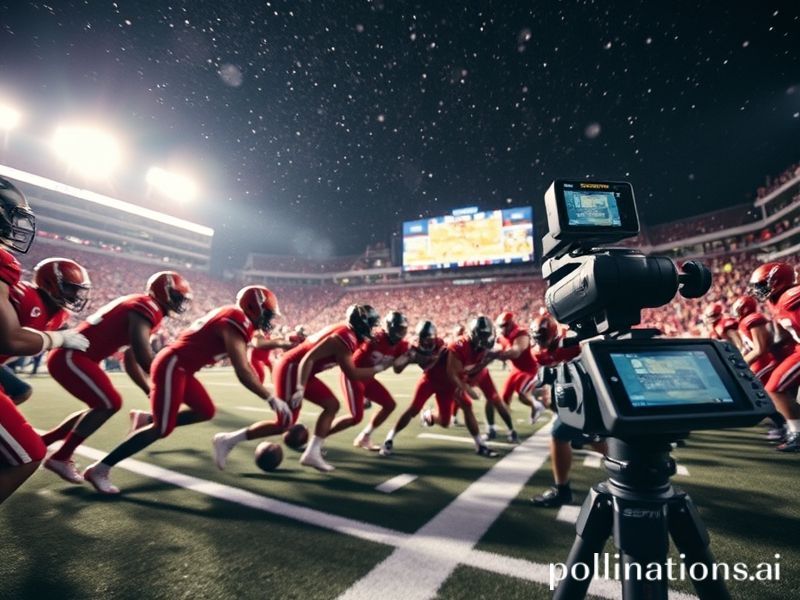utah vs west virginia
Utah versus West Virginia: two rectangular blotches on a Mercator map whose combined population would barely crowd a Shanghai metro line, yet whose rivalry has become a geopolitical Rorschach test for anyone still pretending the world is simple. From the rooftop bars of Lagos to the back-alley tea houses of Tashkent, seasoned observers now parse this inter-mountain grudge match less as a college football sideshow and more as a tidy allegory for the 21st-century order: high-altitude optimism colliding head-on with Appalachian fatalism, all broadcast in 4K to viewers who can’t find either state on a bet.
Let us set the scene. Utah, land of industrious polygamist ancestors and algorithmic ski passes, has spent the last decade marketing itself as the Switzerland of the Rockies: tidy, solvent, suspiciously polite. It exports cloud computing, genealogy software, and the faint cultural whiff of a theocracy that learned to use PowerPoint. West Virginia, meanwhile, clings to its own marketing slogan—“Almost Heaven”—with the grim determination of a family keeping a corpse fresh for the wake. Coal left, opioids arrived, and the state responded by electing a senator who can deadlift a Volkswagen, apparently on the theory that physical strength equals moral clarity.
To the international eye, the fixture is irresistibly symbolic. Picture the Maracanã on Super Bowl Sunday: Brazilian hipsters sipping caipirinhas and arguing whether Utah’s 4th-and-1 play-calling reflects the neoliberal tendency to quantify risk or the Mormon habit of trusting unseen forces. Cut to a pub in Kraków where the bartender, bored of explaining why Poland keeps re-electing the same party, flips the channel to Utah’s gleaming offensive line and mutters, “At least their linemen block.” Then cue a Lagos start-up founder watching on a cracked phone screen, noting that West Virginia’s quarterback wears the same Nike Vapor Untouchable cleats hawked by every pan-African influencer, except his are streaked with actual coal dust.
The game itself—fought over a slab of synthetic turf that could carpet a midsize refugee camp—delivers the usual American pageantry: marching bands, fighter-jet flyovers, and enough LED wattage to power rural Rwanda for a month. Utah scores first via a RPO so surgically precise it could be an IMF austerity package. West Virginia responds with a flea-flicker straight out of 1978, a glorious, doomed gambit akin to Venezuela trying to pay creditors in bolívars. Halftime features a gospel choir from Charleston harmonizing with the Mormon Tabernacle, producing a sonic cocktail that tastes like regret and smells like ethno-nationalist détente.
Back in the real world, global markets twitch. A Singapore hedge fund algorithm, trained on decades of SEC filings and Twitter sentiment, briefly mistakes the term “Mountaineers” for a rare-earth ETF and spooks the Nikkei. A Swiss commodities trader watching from Zug calculates that the carbon footprint of the halftime fireworks equals three days of Mali’s entire energy grid. Meanwhile, a Ukrainian infantryman huddled in a Bakhmut basement streams the third quarter on a cracked Starlink dish, because even artillery duels need escapism.
When the final whistle blows—Utah by ten, because of course the team with its own analytics department beats the squad still using fax machines—the planet absorbs the result with practiced indifference. Tokyo opens another canned coffee, Lagos toggles back to Premier League gossip, and the Swiss trader books a weekend in Davos where none of this will be mentioned. Yet for one crystalline instant, two patches of American nowhere managed to refract every global tension: prosperity versus precarity, data versus dirt, the myth of meritocracy versus the poetry of decline.
And then, like all modern diversions, the feed cuts to auto insurance commercials starring a CGI gecko with a Cockney accent, reminding us that every culture gets the absurdity it deserves.







